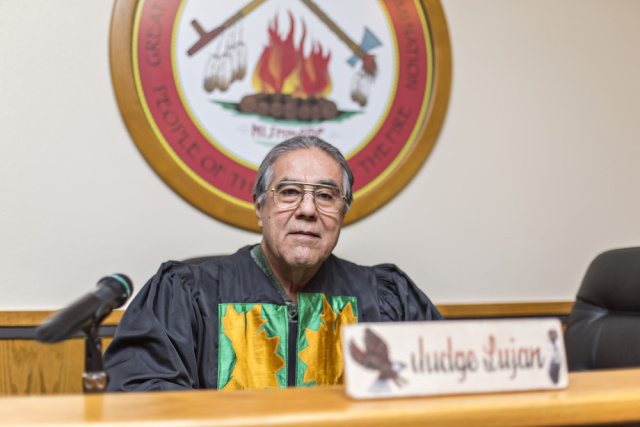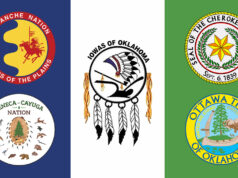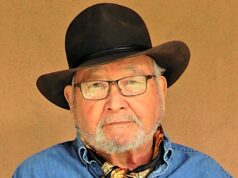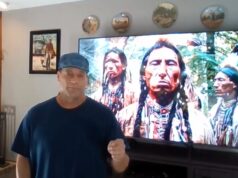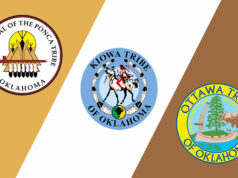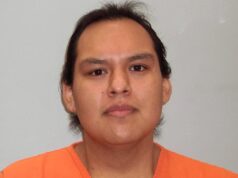Recently, NonDoc contacted Citizen Potawatomi Nation Judge Phil Lujan about social and legal issues facing Oklahoma’s Native American community. Here, the chief district judge speaks about his least favorite cases and the social issues that drive them. The followiing interview was conducted via email, and the judge’s answers have been edited lightly for style and content.
Tell us about the Citizen Potawatomi Nation (CPN) and its judicial structure. Over what types of cases do you most routinely preside?
The CPN has a three-judge district court. I am the chief district judge with two associate district judges. We have a CPN supreme court with seven justices. One interesting fact is our court system has the express power of judicial review of any CPN legislative enactment.
The most routine type of case is a guardianship. They are primarily arrangements for temporary placement of a child with relatives. This is a symptom [of the] growing inability of parents to fulfill their role. The second most active area is criminal cases. They primarily concern the Tribe’s business enterprises. After these two, indian child welfare, divorces, adoptions and protective orders round out our routine cases.
Where did you grow up? I have heard you spent time at a boarding school in New Mexico. Is that correct? Tell us a little about that time of your life.
I grew up in southwest Oklahoma, in Kiowa County. I was born in Lawton. The specific Kiowa community I grew up in is Rainy Mountain. I was raised by my grandparents and went through the fifth grade in Mountain View, Okla. I grew up in rural Oklahoma before the [Rural Electrification Administration]. By this I mean no electricity or indoor facilities. I did my homework with light from a kerosene lamp. I went to live with my parents in the sixth grade in Lawrence, Kan. My parents worked at Haskell Institute in Lawrence. This was a high school and vo-tech boarding school. This may have led to the confusion of my going to boarding school. I never attended boarding school.
What is your background personally? When and why did you enter the legal system?
As I stated earlier about being raised by my grandparents, this is a typical traditional arrangement among the Kiowa. I graduated from Lawrence High School. My undergraduate career is somewhat checkered.
I started at Kansas University, with stops at the [universities] of Colorado, Oklahoma and finally graduated from Washburn University in Topeka, Kan. Washburn is a small liberal arts college with an excellent reputation. I graduated from the University of New Mexico[‘s] law school in Albuquerque, NM. I went to law school because Browning Pipestem talked me into going. I really had no plans at the time but just to survive one semester at a time until I faced graduation and the prospect of actually doing something in the world.
I can’t say I liked law school. I survived because I was a sociology major, and I turned [that] into an advanced sociology degree. If you want to know how the US really works, you have to know the legal system. I have worked exclusively in the tribal court systems in Oklahoma since their resurrection in 1979. This is also because Browning Pipestem asked to me to be involved.
What do you enjoy about being on the bench, and what is your least favorite part of the job?
I like the fact no day or week is routine. Every day and every case has its own wrinkles. My least favorite part is child-custody battles. These cases give me indigestion and a headache. When you have the responsibility for a decision that will affect a child’s current and future life, it is a burden.
What are the biggest conflicts you see between tribal nations such as yours and U.S., state, county and municipal governments?
There are some conflicts between the different jurisdictions, but there has been a continued development of cooperation between the state and tribal jurisdictions. The primary issue for the tribal courts is to have criminal jurisdiction over non-Indians. This is a complicated area that I do not want to get into in an abbreviated fashion. Congress is the entity that must authorize this jurisdiction. Recent federal law addresses this issue in a limited way concerning domestic violence. These are general problems because it is not appropriate for a judge to involve themselves in political issues.
What is the major conflict between Citizen Potawatomi Nation and the City of Shawnee? How do you see these issues being resolved? Do you think compromise can be found before the two entities’ relationship reaches a tipping point?
As stated above I will not make any comment concerning whatever conflict is ongoing between the tribe and state entities. This is because I may have a case filed in the CPN court.
What is the biggest social or economic issue facing American Indians in Oklahoma? What is the biggest problem you see coming through your court?
The biggest problem I see coming through the CPN tribal court is the effect of alcohol and drug abuse on the family. This is the reason we have so many guardianship cases. We have far too many children being raised by older relatives. This is not the traditional circumstance that I was raised in but the result of the parents’ addiction lifestyle.
If you were not a judge, what would you be doing?
I taught for 25 years at the University of Oklahoma in the department of communication. I developed some courses in intercultural communication primarily using Native American examples. I would probably teach an occasional course at a small university and present one- or two-day training seminars.








